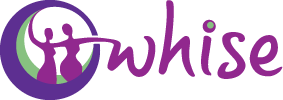Women’s Health Week is a reminder to ‘say yes to you’—to your health, your wellbeing, and your right to accessible, respectful care. At Women’s Health in the South East (WHISE), this message comes alive every day through our community education sessions designed with and for women from migrant, refugee, and culturally and linguistically diverse backgrounds.
At the heart of this work are two of our team members: Malavika Kadwadkar, WHISE’s Community Outreach Lead, who facilitates these sessions, and Somaye Sharifi who attends to capture observations and photographs that bring participants’ stories to life. Together, they ensure every session is a culturally safe, inclusive, and empowering experience.
Creating Culturally Safe and Accessible Spaces
Health is not just about information—it’s about connection, trust, and cultural understanding. Malavika’s facilitation is grounded in cultural safety and accessibility. She begins by inviting women to share their language, traditions, and values, ensuring that every voice feels welcomed and respected. Sessions often start with group agreements, creating a shared understanding of respect and openness.
Malavika’s methods are interactive and tailored:
- Storytelling and open discussion help women connect across cultures and recognise shared values.
- Practical demonstrations, such as how to use different period products or bone-strengthening exercises, make health information tangible and relevant.
- Reflective and creative activities, like affirmation cards or myth-busting games, encourage women to build confidence and challenge stigma.
- Calming techniques, including guided meditation, allow participants to centre themselves before learning.
By using bilingual facilitation, plain language, and culturally relevant examples, Malavika makes complex health information accessible. She also adapts when children are present, shifting the pace or giving space for mothers to re-engage without feeling left behind.
Recent sessions have covered topics such as:
- Perinatal mental health – reducing stigma and introducing self-care strategies such as mindfulness and affirmations.
- Pelvic floor and continence health – building a culture of openness and care that affirms women’s voices and experiences, as well as supporting their wellbeing through preventative self-care.
- Cervical screening and breast health – increasing understanding of early detection and encouraging practical actions like booking screenings.
- Puberty workshops for mothers and daughters – fostering intergenerational conversations to reduce stigma and equip girls with body confidence.
In each setting, participants reported feeling “heard, supported, and empowered,” with many describing sessions as “eye-opening” and “life-changing”.
The Role of Support and Environment
While Malavika leads the conversation, Somaye plays a vital role of ensuring the environment is welcoming and calm—setting up spaces, arranging equipment, and quietly supporting women to feel at ease. Her careful observational notes and photos also give WHISE valuable insights into how participants engage, respond, and grow from session to session.
This partnership creates an environment where women can relax, laugh, sometimes cry, and ultimately feel safe enough to share openly. Together, Malavika and Somaye transform community spaces into hubs of learning, trust, and empowerment.
The Impact: Women Saying Yes to Themselves
The theme ‘Say yes to you’ resonates powerfully with the women who attend WHISE’s sessions. For many, social norms that reinforce stigma and language barriers mean they may have never had the chance to discuss topics like menstruation, mental health, or pelvic floor health openly.
Through WHISE’s community outreach:
- Women have left sessions with confidence and practical strategies – from recognising signs of depression to performing pelvic floor exercises.
- Mothers have expressed a strong determination to “break the cycle of silence” and give their daughters better support than they received growing up.
- Participants have emphasised that self-care is survival, not selfishness – an essential step in protecting both personal and family wellbeing.
One participant summed up the impact simply: “I’m not scared anymore.”
Looking Ahead
Women’s Health Week reminds us that when women say yes to their health, whole communities benefit. At WHISE, we are proud to support migrant and refugee women to take those steps, and proud of our staff whose dedication makes it possible.

